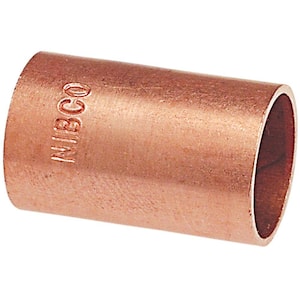The Ultimate Guide to Lasting Dealing With Eco-Friendly Copper Products
The Ultimate Guide to Lasting Dealing With Eco-Friendly Copper Products
Blog Article
Discovering the Diverse Applications of Copper Products in Modern Industries
Copper products have actually established themselves as important components across a myriad of contemporary industries, mainly because of their remarkable conductivity, pliability, and resistance to corrosion. From enhancing the effectiveness of electric systems to playing a vital role in renewable resource technologies, the flexibility of copper is evident. Its recyclability placements it as a sustainable selection in production and electronic devices. As industries increasingly focus on technology and sustainability, the varied applications of copper warrant a closer assessment, especially regarding their possible effect on future technical innovations and environmental methods.
Electrical Applications of Copper
Copper is an essential material in the electrical market, representing around 60% of the total demand for non-ferrous metals around the world - Copper Products. Its superior electric conductivity, which is almost twice that of light weight aluminum, makes it the recommended choice for a vast range of electric applications. From wiring systems in industrial and property buildings to high-voltage power transmission lines, copper makes certain performance and reliability in electricity shipment
Along with circuitry, copper is integral to the production of electric components such as electric motors, transformers, and generators. These elements utilize copper's thermal conductivity and pliability, important for warm dissipation and reliable efficiency. Copper's resistance to corrosion boosts the life-span and durability of electrical systems, making it a cost-effective option in the long term.
The development of sustainable power sources, such as solar and wind power, has actually additionally boosted the demand for copper in electric applications. As markets shift in the direction of sustainable energy solutions, copper's function ends up being much more vital. Overall, the flexibility and performance features of copper solidify its standing as a foundation product within the electrical sector, driving innovation and efficiency across different applications.
Pipes and Piping Solutions
In modern plumbing systems, the selection of products considerably influences both performance and durability. Copper has actually become a favored alternative as a result of its distinct residential properties, including corrosion resistance and antimicrobial attributes. These characteristics make sure that copper piping stays safe and sturdy for transferring safe and clean water, an essential consideration in residential and industrial applications.
One of the key benefits of copper in pipes is its ability to stand up to heats and pressures, making it suitable for a selection of applications, from warm water systems to heating and cooling networks. Furthermore, copper's flexibility enables less complicated installation in intricate piping formats, decreasing the threat of failings and leaks.
Another noteworthy benefit is copper's long life expectancy, frequently exceeding half a century with correct upkeep. This longevity not just reduces substitute expenses but additionally contributes to sustainable techniques by lowering waste. Moreover, copper's recyclability aligns with modern-day ecological standards, promoting a circular economy within the plumbing industry.
Copper in Renewable Resource
The versatility of copper extends beyond pipes applications, playing a vital role in the eco-friendly energy sector. Its superb electrical and thermal conductivity makes it an important material in the production and distribution of eco-friendly power resources, specifically solar and wind power. In solar panels, copper is used in solar batteries and circuitry, promoting efficient energy conversion and transmission. Its resistance to rust ensures resilient performance, which is critical for taking full advantage of power result gradually.

Moreover, as the worldwide need for electric automobiles (EVs) boosts, copper's role in battery systems and charging facilities comes to be a lot more substantial. The material's capacity to conduct electrical power efficiently is essential to the efficiency of EV batteries, enhancing array navigate to this site and charging rate.
Copper's Duty in Electronics
Electronics producing counts heavily on copper's remarkable buildings, especially its high electrical conductivity and thermal effectiveness. These qualities make copper a suitable choice for a large range of electronic components, consisting of connectors, circuit card, and circuitry. The metal's capacity to effectively send electrical signals makes certain minimal power loss, which is vital in high-performance electronic tools.
Furthermore, copper's thermal conductivity plays a significant role in heat dissipation, securing delicate components from overheating. This is specifically crucial in modern-day electronics, where portable layouts bring about enhanced warm generation. Copper is likewise favored for its malleability and ductility, permitting it to be conveniently shaped right into elaborate styles that fulfill the demands of sophisticated electronic applications.
With the surge of customer electronic devices, telecoms, and electrical cars, the demand for copper in the electronics sector continues to grow. Therefore, copper remains a cornerstone material in the ever-expanding field of electronics.
Ingenious Utilizes in Manufacturing

One significant application remains in additive production, where copper-based products are employed in 3D printing processes. This allows for the production of complicated geometries and lightweight components, especially in the aerospace and vehicle sectors. Furthermore, copper's thermal conductivity makes it a suitable option for heat exchangers, boosting effectiveness in commercial cooling systems.
Furthermore, the rise of clever production has seen the incorporation of copper in IoT gadgets, where its conductive capabilities support sophisticated picking up modern technologies. In the world of renewable energy, copper is pivotal in the production of photovoltaic panels and wind generators, promoting a lot more reliable energy conversion and circulation.
As markets make every effort for sustainability and development, copper's convenience and performance remain to place it as a crucial product, driving improvements in production and adding to the growth of smarter, much more effective products.
Final Thought
The integral duty of copper in sustainable power and its necessary feature in electronic devices emphasize its value in progressing lasting techniques. advice Collectively, these applications show copper's important payment to technological development and commercial efficiency in modern society.
From enhancing the efficiency of electric systems to playing a critical function in renewable energy modern technologies, the convenience of copper is apparent. As markets significantly focus on innovation and sustainability, the diverse applications of copper call for a closer exam, especially concerning their prospective influence on future ecological techniques and technological developments.
The development of renewable power resources, such as solar and wind power, has actually better raised the demand for copper in electrical applications. In general, the flexibility and efficiency characteristics of copper solidify its standing as a cornerstone product within the electric market, driving development and performance throughout numerous applications.
The convenience of copper expands past pipes applications, playing an important role in the sustainable energy market.
Report this page